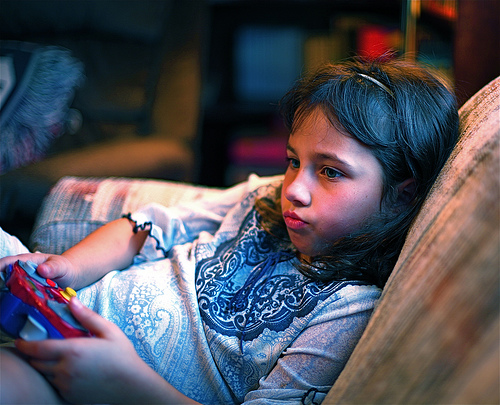 A new study has found that gaming for extended periods of time can cause children to have trouble concentrating in school. Although researchers have yet to pinpoint the reason why this is the case, the findings could raise a red flag for parents.
A new study has found that gaming for extended periods of time can cause children to have trouble concentrating in school. Although researchers have yet to pinpoint the reason why this is the case, the findings could raise a red flag for parents.
The American Academy of Pediatrics recommends that kids spend no more than two hours per day staring at the television, and researchers at Iowa State University in Ames backed this claim with their results, according to a recent article in the China Daily. Children in the study who played video games or watched TV for more than the advised amount of time increased their chances by 67 percent of having an above-average level of attention deficit.
Some kids in the study had already shown signs of having attention problems before the research began, but for them, their concentration issues still increased if their time in front of the screen amounted to more than two hours. Undergraduate students were also tested, and under the same circumstances, their chances of having above average attention problems doubled.
None of the kids in the study were diagnosed with attention-deficit/hyperactivity disorder (ADHD).
This study was the first of its kind to look at both gaming and television at the same time, allowing researchers to draw the comparison between the two. However, it doesn’t actually prove that TV or video games themselves directly cause attention deficits, but rather, “it could be that kids who have short attention spans to begin with might be more likely to pick up a joystick than a book,” according to CNN.
Douglas A. Gentile, who conducted research for the study, believes this research is helpful to parents who have control over the remote and are looking for ways to help their child focus in school. However, the findings aren’t a reason to ban a child from the entertainment room entirely, or even stick to a two hour time limit.
"Not every kid is going to be influenced by the same amount," Gentile said in the China Daily. "No one thing causes our behavior. It’s a combination of all the pushes and pulls that we get — the media is just one variable."
Read the full CNN article here.



